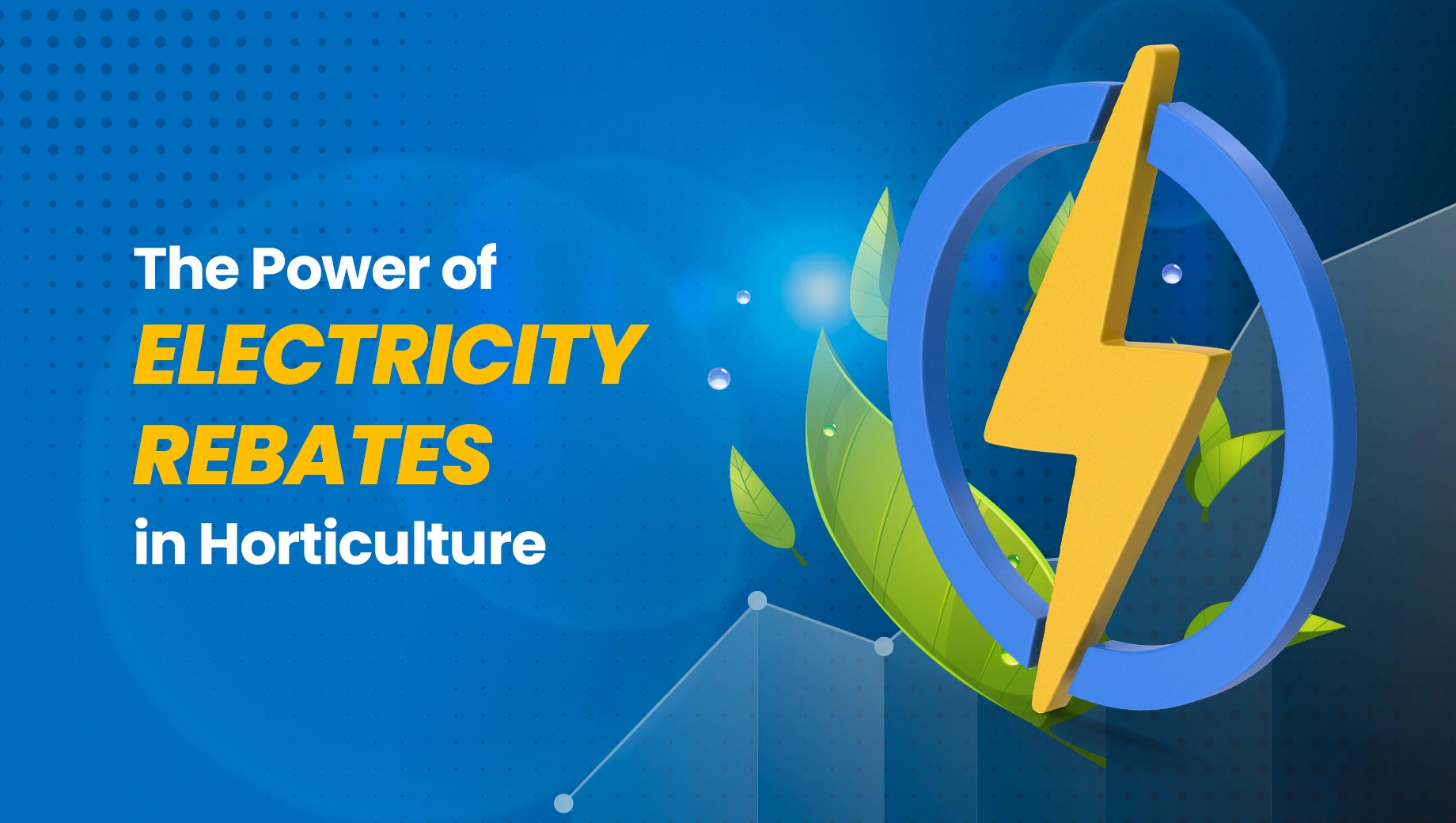Maximizing Profitability and Environmental Responsibility:

Electricity rebates are financial incentives offered by utility companies, government agencies, and other organizations to encourage businesses to adopt energy-efficient practices. These rebates typically cover a portion of the cost of implementing energy-saving measures, such as upgrading to more efficient lighting systems, installing renewable energy sources, or implementing energy management systems.
Cost Savings: One of the primary benefits of electricity rebates is the potential for significant cost savings. By offsetting the upfront costs of energy-efficient upgrades, rebates help businesses lower their operating expenses and improve their bottom line.
Environmental Impact: Electricity rebates play a crucial role in promoting environmental sustainability within the horticultural industry. By incentivizing the adoption of energy-efficient technologies, rebates help businesses reduce their energy consumption and greenhouse gas emissions, thereby mitigating their environmental impact.
Enhanced Competitiveness: Businesses that embrace energy-efficient practices are better positioned to compete in an increasingly competitive market. By reducing energy costs and demonstrating a commitment to sustainability, horticultural businesses can differentiate themselves from competitors and attract environmentally conscious customers.
Innovation: Electricity rebates stimulate innovation within the horticultural industry by encouraging businesses to explore new technologies and practices. By providing financial support for energy-efficient projects, rebates incentivize businesses to invest in cutting-edge solutions that improve efficiency and sustainability.
Key Considerations for Leveraging Electricity Rebates: Identify Eligible Projects: Before applying for electricity rebates, businesses should identify potential energy-saving projects that are eligible for incentives. This may include upgrading lighting systems, installing energy-efficient equipment, or implementing renewable energy solutions.
Understand Rebate Programs: It's essential to thoroughly research available rebate programs to understand eligibility criteria, application processes, and incentive amounts. Working with a knowledgeable rebate provider like What Rebates can help businesses navigate the complexities of rebate programs and maximize their incentives.
Document Savings: To qualify for electricity rebates, businesses may be required to provide documentation of energy savings resulting from energy-efficient upgrades. Keeping detailed records of energy consumption before and after implementing energy-saving measures is essential for demonstrating eligibility and maximizing rebate amounts.
Monitor Deadlines: Rebate programs often have deadlines for application submission and project completion. Businesses should closely monitor these deadlines to ensure they don't miss out on valuable incentives.
In conclusion, there are different rebate types - electricity rebates offer horticultural businesses a valuable opportunity to maximize profitability while promoting environmental responsibility. By incentivizing energy-efficient practices, rebates enable businesses to reduce operating costs, enhance competitiveness, and minimize their environmental footprint. However, navigating the complexities of rebate programs can be challenging, which is why partnering with a knowledgeable rebate provider like What Rebates is crucial. With expert guidance and support, horticultural businesses can leverage electricity rebates to achieve their financial and sustainability goals, positioning themselves for long-term success in a rapidly changing industry.